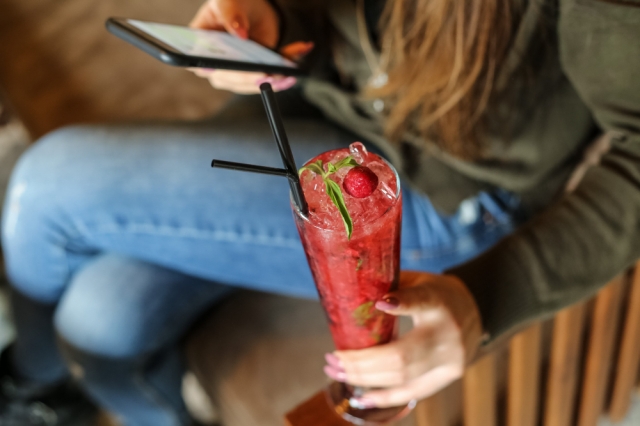Walk into any grocery store today and you'll notice something different in the beverage aisle. The same old orange and apple juices are getting pushed aside by bottles filled with vibrant colors and names most people can't even pronounce. Dragon fruit, yuzu, guava, açai; these aren't just fancy words anymore. They're becoming the new normal. Consumers want drinks that taste real and offer something beyond the usual. Companies are racing to source fruits from tropical forests, Mediterranean groves, and Nordic landscapes to meet this demand. It's not just a passing trend either. People want their beverages to tell a story, to take them somewhere new with every sip. Let's look at why authentic and exotic juice blends are taking over and what this means for the future.
Why Do Authentic Flavors Matter to Modern Consumers?
People today aren't impulse buyers like they used to be. They actually read ingredient labels now, sometimes spending minutes in the aisle comparing products. There's this growing awareness about what goes into our bodies, and artificial flavoring just doesn't cut it anymore. When someone picks up a juice made with real fruit purees, they know they're getting something closer to what nature intended; the actual taste and nutrients of fresh fruit, not some lab-created approximation. Social media plays a big role here too. Instagram and TikTok are flooded with videos of colorful tropical drinks and unusual combinations. When an influencer posts about trying passion fruit juice, thousands of their followers immediately want to experience it themselves. That kind of peer recommendation beats any TV commercial.
How Exotic Fruits Became Mainstream Beverage Ingredients?
Remember when finding fresh lychee or açai meant hunting down a specialty Asian or health food store? Those days are pretty much over. These fruits that seemed so rare and exotic a decade ago now sit on regular supermarket shelves. The big change came from improvements in how we move food around the globe. Better refrigeration during shipping, faster air freight, and more reliable supply chains mean a mango harvested in Thailand can arrive fresh at a juice factory in Europe or North America within days. Technology solved the logistics problem, which opened the door for beverage companies to experiment with ingredients that were previously too difficult or expensive to source consistently. Guava brings this sweet-tangy tropical vibe. Yuzu has bright citrus notes with something almost floral underneath. Açai tastes like rich, dark berries with this earthy depth you don't get from strawberries or blueberries. These unique flavors give people actual variety, not just different labels on basically the same taste.
Regional Fruits Creating Global Market Appeal
Every part of the world grows fruits that are special to that climate and culture. Tropical regions give us mangosteen, rambutan, and tamarind. Mediterranean countries produce pomegranate and blood oranges. Up in Nordic areas, they harvest cloudberries and lingonberries that most people have never heard of. Smart beverage companies realized they could take these regional treasures and introduce them to curious consumers everywhere else. There's something appealing about trying a fruit that's been enjoyed in Scandinavia for centuries but is completely new to you. It feels premium and exotic, plus there's an ethical bonus many people appreciate. When a global brand sources açai from Brazil or baobab from Africa, that creates real income for farming communities in those regions. Consumers like knowing their purchase does some good beyond just satisfying their taste buds.
Popular Exotic Fruit Combinations in Today's Juices
The successful products don't just throw one exotic fruit in a bottle and call it a day. They're mixing multiple flavors in ways that shouldn't work but somehow do. Pineapple with turmeric gives you tropical sweetness balanced by this warm, earthy spice kick. Watermelon and mint creates something refreshing that feels sophisticated, not like a kid's juice box. Some brands are even adding vegetables or herbs to fruit blends. These combinations challenge what we expect juice to taste like, and adventurous consumers love it. Getting these blends right takes serious work though. Beverage developers test dozens of versions before landing on the perfect balance. Too much turmeric and it overpowers the pineapple. Not enough mint and the watermelon tastes flat. When they nail it, these become signature products that people seek out.
Health Benefits Behind Exotic Juice Trends
Let's be honest; taste matters, but a lot of people choose exotic juices because they've heard these fruits are healthier. And there's truth to that. Açai has incredibly high antioxidant levels. Guava packs more vitamin C than oranges do. Dragon fruit provides fiber and magnesium. The wellness movement has people reading about superfoods and wanting to add them to their diet without too much effort. Drinking a bottle of açai juice is way easier than figuring out how to buy and prepare fresh açai berries at home. When a product delivers both great taste and genuine health benefits, it wins over the health-conscious crowd who might otherwise just drink water. Brands that highlight these nutritional advantages alongside flavor do especially well.
Sourcing Challenges for Rare and Exotic Fruits
This is whereby the beverage companies complicate things. Exotic fruits are usually cultivated in isolated locations where transport infrastructure is untrustworthy. And a storm befalls in the wrong place at the harvest-time and all your stores are gone. Export can be closed by political issues in some states. These are unpredictable risks that cannot be easily planned. Also, it is essential to create a stable relationship with suppliers, which is costly and time-consuming. Some companies establish direct relations with the farming cooperatives to obtain more reliable sources. Another headache is quality consistency. A piece of fruit grown in a different place, picked in a different time, and shipped in a different way, may have a significantly different flavor. A bunch of guava in farm A may be good whereas another lot will be bitter. Helping but not an easy task is strict testing and quality standards.
Sustainable Practices in Exotic Beverage Production
As demand grows, sustainability becomes urgent rather than optional. If companies just harvest exotic fruits without thinking about the future, they risk damaging ecosystems and depleting resources local communities depend on. The responsible producers partner with conservation groups to make sure their sourcing won't harm environments long-term. They support farming methods that protect soil quality and preserve biodiversity. Some invest in training programs that teach sustainable techniques while keeping farmers profitable. Consumers care about this stuff now. The same people choosing authentic ingredients also notice packaging. Many brands are switching to recyclable materials, cutting plastic use, and working toward carbon-neutral shipping. Environmental responsibility isn't a nice extra anymore—it's expected.
What's Next for Exotic Juice Innovation?
This trend isn't going anywhere. If anything, it'll accelerate as consumers get more adventurous and demand even more unusual options. Beverage companies will keep exploring lesser-known fruits and developing new combinations. Technology will help push boundaries too. Better preservation methods are being developed that keep flavor and nutrition intact longer. New processing techniques will make it possible to work with ingredients that are too difficult or expensive. Some brands are already testing customizable blends where you choose your preferred fruits and adjust intensity. That kind of personalization gives customers control while providing companies with valuable data about preferences. The intersection of authentic traditional ingredients with modern customization tech represents an exciting direction for the industry.
Conclusion
A major shift in consumer expectations is seen in the trend toward exotic and authentic juice blends. People are no longer excited by generic flavors. They seek authentic flavor experiences that transport them to faraway cultures and locations they may never be able to visit. In response, beverage manufacturers are sourcing unusual fruits from around the world and coming up with creative concoctions that delight and surprise. Farmers in isolated areas can access more profitable markets. Businesses set themselves apart in crowded markets. Authenticity, quality, and the spirit of adventure that comes with doing something novel are the keys to the future. Exotic and genuine juice blends will continue to gain popularity as long as consumers are pushed by curiosity.






